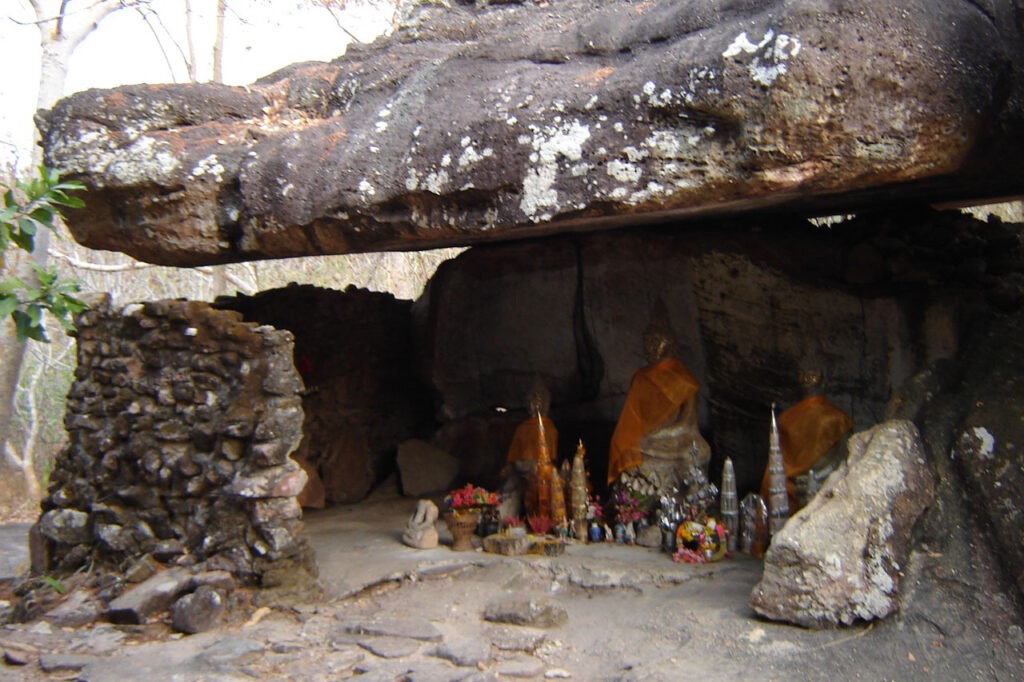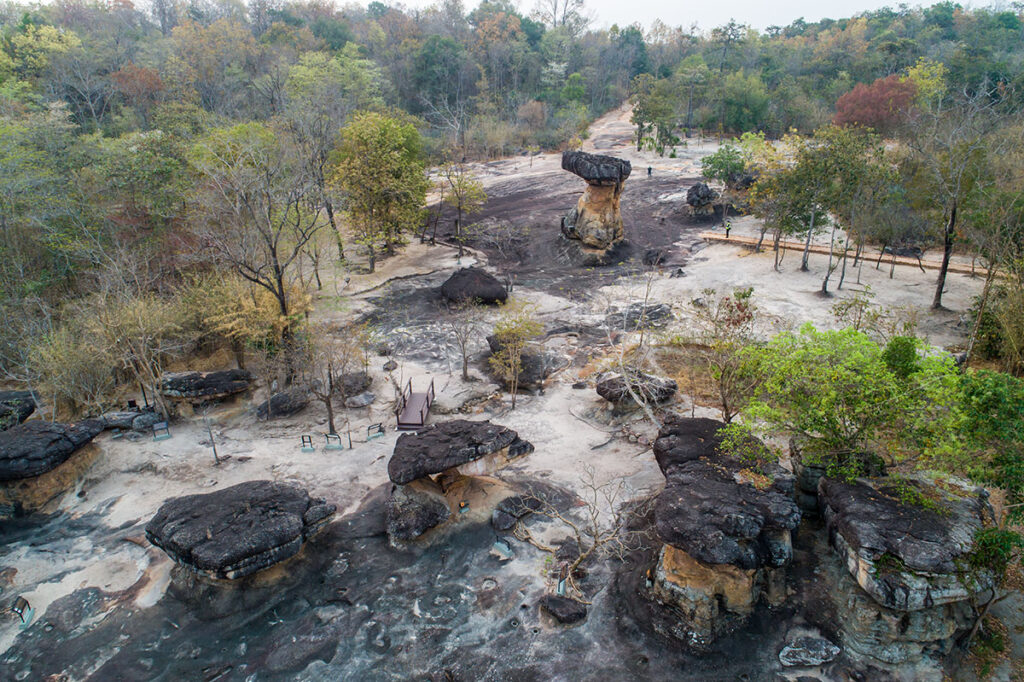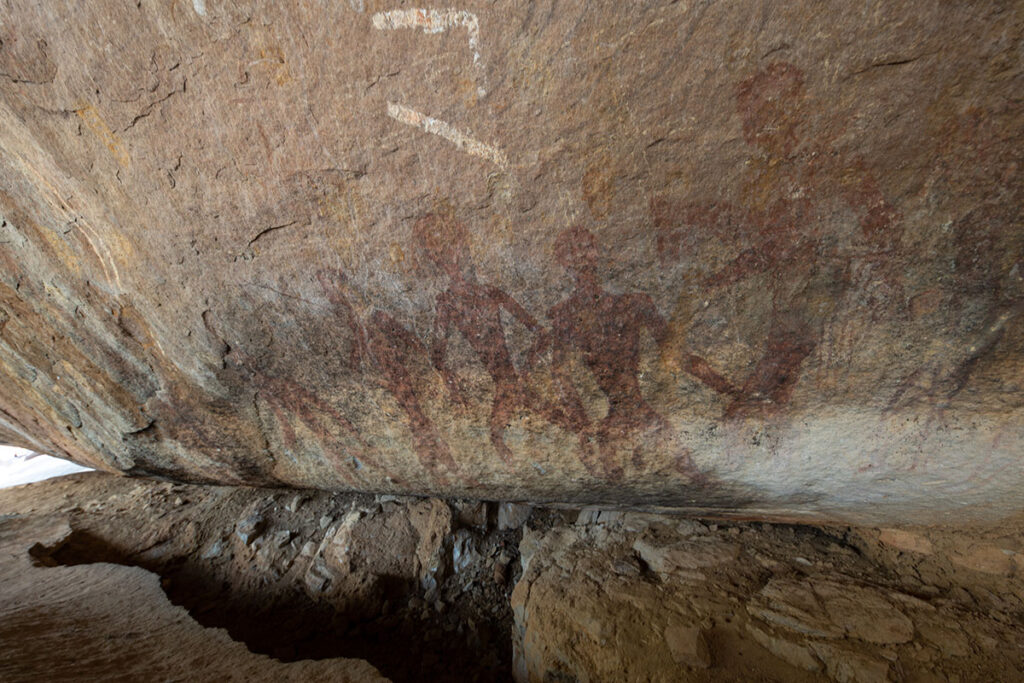Unesco listing for Phu Phrabat

Unesco listing for Phu Phrabat
Thailand’s Phu Prabat Historical Park, in the northeastern province of Udon Thani, is to be added to the Unesco World Heritage list. The park was originally established by the Fine Arts Department of Thailand in 1991 and is known for its surreal rock formations. Many of these formations were used to house religious shrines that date back to the Dvaravati period, featuring both Hindu and Buddhist influence. They were built between the seventh and eleventh centuries CE.
The park’s most famous shrine is called Wat Phra Putthabaht Bua Bok. A Cham–Khmer-style chedi is built over a chamber housing a sandstone Buddha footprint. The shrine attracts pilgrims to its annual festival which is held in March.


An interesting feature of the shrines is the extensive use of Sīma stones to mark out the boundaries of each one. Phu Phrabat is home to the world’s largest collection of these Sīma stones in situ. The site also boasts a number of prehistoric rock paintings.
According to legend, an over-protective king forced his daughter to live at Ho Nang Usa, one of the park’s most striking formations, to prevent her from marrying the prince she fell in love with. But despite her exile, she was able to get a message to him and the couple were married in defiance of her father
Phu Phrabat will become the fifth World Heritage site in Thailand, after the historic cities of Ayutthaya and Sukhothai, and its satellite towns, Ban Chiang archaeological site which is also in Udon Thani, and Si Thep in Phetchabun.
The park is about 60 kilometres northwest of the city of Udon Thani or about 45 kilometres due west of Nong Khai.
Photos: Courtesy of The Fine Arts Department of Thailand
Sukhothai, the cradle of Thai civilisation Historic towns of the Sukhothai Kingdom
Hotels in Udon Thani: Centara Udon Hotels Nong Khai: Amanta Hotel Nongkhai